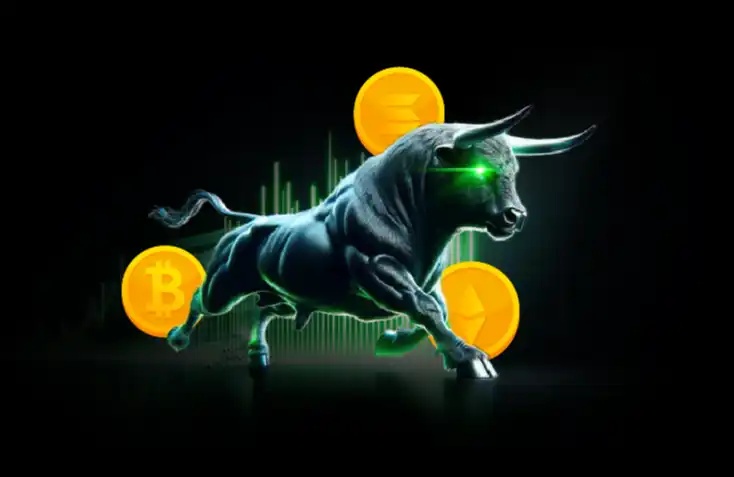100,000 People Exit: Those Who Lost Money in Binance Alpha
After the flash crash of $ZKJ and $KOGE, activity on Binance Alpha has seen a significant decline. According to Dune data, the number of Alpha trading users plummeted from a peak of 233,000 on June 12 to just 195,000 on June 15, losing nearly 40,000 users in just three days—a considerable drop. As of today, the number of users actively transacting on the platform has further shrunk to 70,000, highlighting a drastic decline in user enthusiasm and engagement. Meanwhile, the marginal cost of "point farming" has risen significantly, rapidly deteriorating the cost-effectiveness of participating in Alpha games.

At the same time, some of the recently launched projects on Binance Alpha appear to show signs of "pump and dump" activity right after launch.
BlockBeats analyzed the profitability of Binance Alpha's new point-reward project, VELO. Under normal circumstances (using $1,000 as principal), this Alpha cycle yields a marginal profit for users. If calculated based on transactions between Alpha tokens, the daily trading cost is approximately $4, while the 30-day expected revenue is $224, the 30-day cost is $120, leading to a 30-day net profit of $104, averaging $3.5 per day.

Starting from June 17, 2025, at 00:00 (UTC), Binance Alpha will officially implement new rules, where transaction volumes between Alpha tokens will no longer count toward Alpha Points accumulation. This change implies that strategies relying on farming points through pools like ZKJ/KOGE will no longer be effective. Users will face higher point acquisition thresholds and a more complex liquidity structure.
It is foreseeable that, influenced by the sharp decline of $ZKJ, Binance Alpha's incentive model has entered an adjustment phase. A direct consequence of this mechanism overhaul is the exodus of a large number of previously active users from the Alpha ecosystem. Some are leaving after incurring losses in $ZKJ/$KOGE dual-token pools, while others have found that the marginal returns from point farming no longer justify the trading costs, making them unwilling to invest further effort.
In this interview, BlockBeats spoke with several Alpha users, including LP providers who suffered actual losses during the recent crash, and ordinary participants who tried "point farming arbitrage" but saw poor returns. Among them, some have decided to completely exit the Alpha game, while others remain undecided about whether to seek new opportunities. Through their accounts, we gain a glimpse into the real emotions and reflections driving this "cliff-like user exodus."
Those Who Gave Up
"The early-stage profits were really high, the fees were low, and we even managed to ride the MapleStory wave. By late May, I'd scaled up to 20 accounts. Since facial recognition checks became frequent, I handed the accounts back to their owners to manage themselves. Even so, every day we maintained about $16,000 in actual trading volume."
However, with more participants joining in and competition intensifying, Jiang Jiu noticed troubling signs by mid-June: “On the 14th, I noticed something was off. A few accounts showed significant losses, totaling $160. Something felt very wrong, but I was too preoccupied with adjusting strategies to fully address the problem or accept the risks I didn’t want to admit. My expectations were just too high."
What made matters worse was the ZKJ crash. During that period, a friend of Jiang Jiu misunderstood his comment, "Have you finished farming yet?", as a push to rebuy. In a rush, the friend added to his ZKJ holdings, which ultimately resulted in a 60% loss. Jiang Jiu recalls that he had intended to follow up with a warning to hold off on further action and assess the situation first. However, the friend misunderstood his intention and immediately entered new trades. When the friend realized he was unable to sell quickly, he turned to Jiang Jiu for help. Unfortunately, Jiang Jiu didn’t have time to explain in detail how to set a low-price order to exit quickly. This miscommunication led to the friend helplessly watching the price continue to fall. Jiang Jiu reflected that the core issue behind the loss wasn’t luck but a failure in information analysis and the high cost of communication.

When asked if he had reached out to the project team, Jiang Jiu said he hadn't, explaining, "This kind of thing is just too common in the crypto world. Unless the trading platform takes the lead, retail investors who lose money have nowhere to appeal. You just have to stay cautious yourself."
He also added that since losing access to low-fee farming pools like ZKJ and KOGE, the cost of farming points has significantly increased. Rewards per round have dropped to roughly $50–60, while the score thresholds continue to climb. He admitted he’s on the verge of giving up: "But I still want to hang in there and see how the next few rounds turn out. If it doesn’t go well, I’ll have to quit."
Unlike Jiang Jiu, Mosquito Coil operates four accounts and had accumulated a total profit of around $5,000 prior to the crash. The day before the ZKJ crash, Mosquito Coil had already detected unusual market movements in the token, but the temporary price rebound only fueled his overconfidence.
"The day before, I noticed ZKJ was fluctuating. I held on for an hour and saw it bounce back, even making a $5 profit. So, when the crash hit, I noticed a sharp wick movement and thought it would recover like the previous day."
This sense of false confidence led Mosquito Coil to use a second account after losing $30 with the first one. "I thought it would be the same as the day before — just a normal wick movement. So I left the first account as is and continued farming with my second account, putting in $1,800. But then, the second account started crashing too."
In the end, Wenshang decided to cut losses and exit at a currency price of 0.8, incurring a total loss of over 2000U. "It’s still a lack of sufficient risk awareness. I should have paid more attention to the pool size. On that day, there was indeed a massive withdrawal from the pool."

Wenshang believes the Alpha project has nearly run its course. "The input and output are no longer proportional. After being stuck a few times, it feels like playing for free. Today, all accounts claimed the minimum payout and exited."
Wenshang isn't the only one. In interviews conducted by BlockBeats, multiple individuals mentioned the declining input-output ratio of Binance Alpha. Many are choosing to abandon the multi-account strategy.
The window of opportunity for Alpha’s rewards may be closing.
Under the Weight of Sunk Costs, Yield Farming Continues
Brother Jie, an organizer of a BSC ecosystem community, has been active in Alpha activities since the early Shell launch. Despite being an information disseminator within the community, he was unable to avoid this round of systemic risk.
"At that time, I could sense it — when 'stablecoins' are no longer stable, price fluctuations become significant. I had actually caught a whiff of a 'gray rhino' approaching. But due to account management duties and the time consumed in transaction farming, (I couldn’t control it in time)," Brother Jie explained.

During the market crash, Brother Jie acted promptly to cut losses and informed the members of his group, but still faced significant losses. He believes this can't entirely be chalked up to luck: "Let’s just say it’s another tuition fee paid to the market. There are indeed plenty of ways to avoid this situation. It’s just that while conducting large-scale farming, I happened to encounter this timing where two accounts were simultaneously farming, leaving no way to avoid the heavy losses."
This experience prompted Brother Jie to rethink his risk management strategy, particularly the importance of on-chain monitoring tools. He now feels it’s critical to incorporate such tools in the future: "The first moment you notice price fluctuations and the pool’s liquidity decreasing, you'll know the token price will become more volatile."
Nonetheless, Brother Jie stated he would continue participating in Alpha initiatives: "If there’s profit, it’s worth the effort to keep going. Of course, I’m also looking forward to Alpha coming up with more innovative and fair launch mechanisms."
"The initial strategy was 33 trades at the 60k range, followed by 66 trades at the 130k range. Profits haven’t been calculated in detail yet," Siner explained. This high-frequency, high-stakes trading strategy can yield significant returns during periods of token price stability but also exposes participants to greater operational risks.
His main losses did not stem from market volatility but rather from human errors: "The primary reason for losing money was manual operational mistakes. The first one was that on the 16th, I forgot to sell Koge, and then I decided to go aggressive by targeting the 130k tier. It was too bold. The account that I forgot to sell from has now dropped from 1000 USDT to 400 USDT."
Managing a large number of accounts brought its own efficiency challenges. "I usually finish all the tasks in 1-2 hours, but the workload for the 170k tier was so huge that it took me four to five days of continuous operations, eventually resulting in inefficiencies with no gains."
Unlike users exiting the market en masse, Siner remains optimistic about Alpha's future. When asked if he would continue farming Alpha, Siner said, "Absolutely, I just figured out a method with no losses." This suggests he is still exploring speculative opportunities to "farm rewards" within the Alpha ecosystem, even after the rules have been adjusted.
As for Tian, who didn’t lose money during the ZKJ crash, exiting Alpha means he cannot recover his sunk costs from earlier efforts. "I've already accumulated 200 points as sunk costs. If I give up, it’s all wasted. Besides, if a good project launches on Alpha later, I could recover it all in one go."
Tian summarized his attitude toward participating in Alpha projects as follows: "Farm points, exploit inefficiencies, they’re all junk projects—don’t get emotionally attached."
Conclusion
Jiangji candidly admitted that the profits from Alpha farming no longer cover operational costs. "The current rewards are only 50-60 USDT, and score thresholds have risen. Trading slippage is also increasing, so a day's work might only net three or four dollars." The collapse of ZKJ/Koge took away more than just principal—it also closed a low-cost arbitrage path. Should the Alpha project remove the rule where trading volume between token pairs counts towards points, users will face higher trading frictions and a more complex points game structure.
Binance Alpha was once seen as an innovative mechanism to rejuvenate on-chain activity and user participation, but the current points model has clearly overestimated the long-term incentive effects of trading volume and LP contributions while underestimating the risks of structural squeezes.
With Binance's new regulations in place, Alpha is transitioning from a tool for point farming and arbitrage toward a system that emphasizes genuine interactions and value capture. This means point accumulation will no longer solely depend on trading volume or LP quantity but will increasingly consider factors like holding duration, interaction depth, and real user demand.
However, for many users relying on low-cost point-farming strategies, this transition forces a reevaluation of their participation. If Alpha seeks to restart its growth engine in the future, it will need to strike a new balance between fair distribution and risk control mechanisms.
For users still exploring the Alpha ecosystem, it is recommended to enhance risk management awareness and pay attention to indicators such as pool structure, token fundamentals, and LP concentration. This will help avoid becoming a bag holder during the next systemic risk exposure. After all, in this ever-experimenting Web3 world, the window for arbitrage always exists, but the cost of hitting a mine has never diminished.
Welcome to join the official BlockBeats community:
Telegram Subscription Group: https://t.me/theblockbeats
Telegram Discussion Group: https://t.me/BlockBeats_App
Official Twitter Account: https://twitter.com/BlockBeatsAsia


 Forum
Forum Finance
Finance
 Specials
Specials
 On-chain Eco
On-chain Eco
 Entry
Entry
 Podcasts
Podcasts
 Activities
Activities
 OPRR
OPRR









